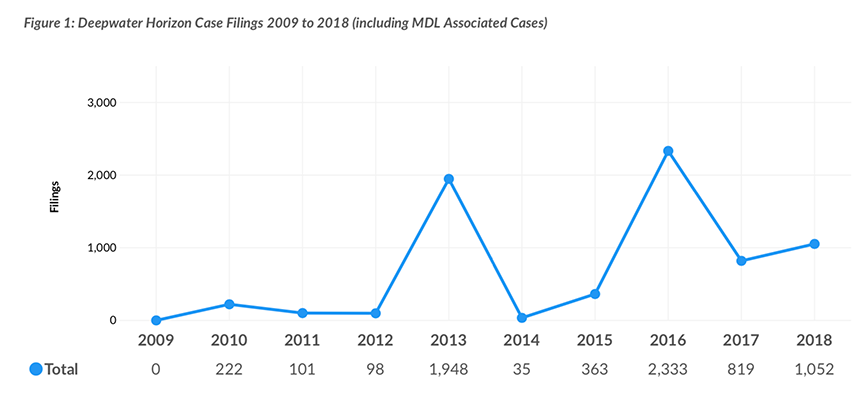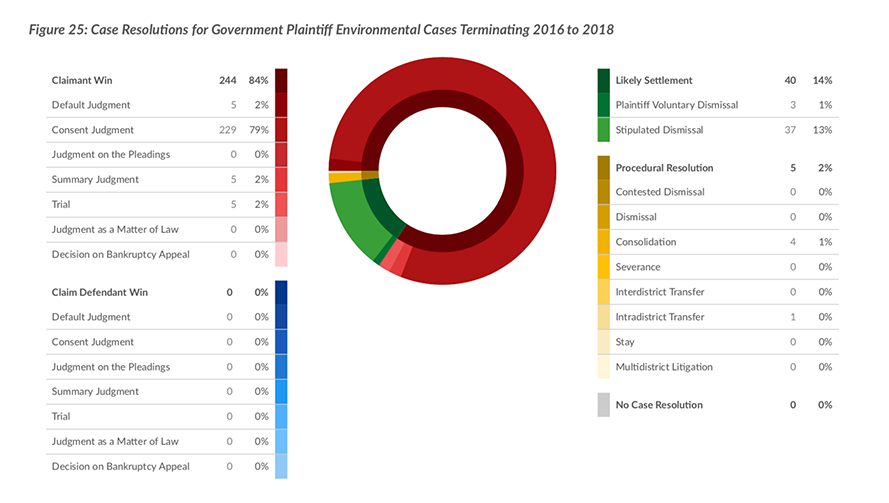Lex Machina is excited to release its first Environmental Litigation Report. This report analyzes the latest trends in cases involving a dispute over regulation of the environment. Environmental litigation involves pollution, use of natural resources, protection of forests, rivers, plants, and animals, and other ways that humans interact with nature.

The report focuses on the three-year time period from January 1, 2016 to December 31, 2018 to showcase recent trends in U.S. District Court. It also breaks down data into important case type tags: Clean Air Act, Clean Water Act, Endangered Species Act, CERCLA (Comprehensive Environmental Response, Compensation, and Liability Act), NEPA (National Environmental Policy Act), and RCRA (Resource Conservation and Recovery Act).
Highlights include:
- Overall, more than 13,000 Environmental cases were filed between 2009 through 2018. Out of those, nearly 7,000 cases are associated with the Deepwater Horizon litigation.
- When excluding MDL associated cases, Environmental case filings declined steadily between 2009 and 2018.
- Due to California’s geography and history of environmental advocacy, districts in California were three of the top five districts with the most Environmental case filings from 2016 to 2018.
- Judge Wiley Young Daniel from the District of Colorado presided over the most Environmental cases filed from 2016 to 2018.
- Government entities were the most active parties in Environmental litigation both as plaintiffs and defendants.
- After government parties, environmental interest organizations are the most active plaintiffs. Most active defendants also include Exxon which was named in lawsuits relating to its oil drilling, and Honeywell, which was named in a large number of CERCLA cases.
- Consent judgments, also known as Consent Decrees, are common in Environmental cases because many involve enforcement actions brought by government agencies such as the EPA.
- The most common findings were No NEPA Violation, Clean Water Act Violation, and Clean Air Act Violation. The latter two were mainly on consent.

Chuan Qin, Product Manager at Lex Machina, hosted a webcast on July 16, 2019 to review the highlights and findings of the report. To view a recording of the webcast, click here.
To request a copy of the report, please click here.